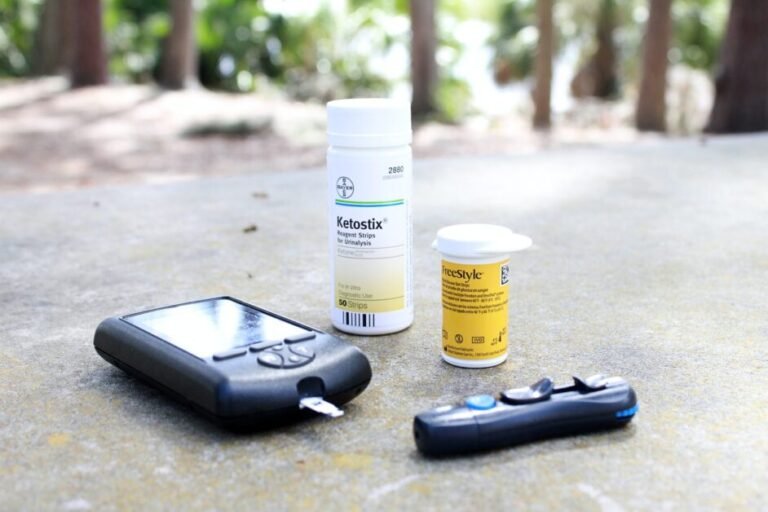The Importance of Preventive Care for Diabetes
Diabetes is a prevalent health condition affecting millions of people worldwide, and its impact on individuals and their loved ones cannot be underestimated. In this article, we explore the significance of preventive care for diabetes, offering valuable tips and advice for those directly affected by the condition or for family and friends of individuals living with diabetes. By focusing on preventive measures, we aim to enhance understanding and empower individuals with the tools needed to effectively manage this chronic disease.

Table of Contents
Benefits of Preventive Care
Preventive care plays a crucial role in the management of diabetes and can bring about a multitude of benefits for individuals. By focusing on proactive measures, individuals can significantly reduce the risk of complications, improve blood sugar control, increase longevity, and enhance their overall quality of life.
Reducing the Risk of Complications
One of the greatest advantages of preventive care in diabetes management is the ability to reduce the risk of complications associated with the condition. By consistently monitoring blood sugar levels, engaging in regular physical activity, and adhering to medication regimens, individuals can prevent or minimize the onset of potential complications such as cardiovascular disease, kidney damage, nerve damage, and eye problems.
Improved Blood Sugar Control
Preventive care also plays a critical role in maintaining better blood sugar control. Regular check-ups and screenings allow healthcare providers to closely monitor an individual’s diabetes management plan and make necessary adjustments. By consistently keeping blood sugar levels within target ranges, individuals can reduce the risk of immediate and long-term complications while effectively managing their condition.
Increased Longevity
Engaging in preventive care measures has been linked to an increase in longevity for individuals with diabetes. By actively managing their condition and making proactive choices, individuals can significantly reduce the risk of severe health issues and premature mortality. Preventive care allows individuals to take charge of their health and potentially enjoy a longer and more fulfilling life.
Enhanced Quality of Life
Implementing preventive care measures can lead to a substantial improvement in overall quality of life for individuals with diabetes. By actively managing their condition, individuals can minimize the impact of diabetes on their daily lives and maintain a sense of control over their health. From maintaining stable energy levels to reducing the risk of complications that may impede daily activities, preventive care can contribute to a better quality of life and increased well-being.
Key Components of Preventive Care
To successfully implement preventive care for diabetes management, it is essential to understand and prioritize key components that contribute to its effectiveness.
Regular Check-ups and Diabetes Screenings
Regular check-ups and diabetes screenings are fundamental components of preventive care. Routine appointments with healthcare providers allow for the monitoring of blood sugar levels, evaluation of overall health, and adjustment of medications or treatment plans as needed. Through these check-ups, healthcare providers can identify and address any emerging issues or potential complications early on, thereby preventing further health deterioration.
Blood Sugar Monitoring
Frequent blood sugar monitoring is a cornerstone of diabetes management and preventive care. Regularly monitoring blood sugar levels helps individuals understand how different lifestyle factors, such as diet and physical activity, can affect their diabetes. By consistently testing blood sugar levels, individuals can make informed decisions about medication dosages, dietary choices, and other lifestyle modifications necessary to maintain optimal blood sugar control.
Lifestyle Modifications
Making positive lifestyle modifications is crucial for preventing diabetes-related complications and improving overall health. These modifications can include adopting healthy eating habits, engaging in regular physical activity, managing weight, and practicing stress management techniques. By incorporating these changes into daily life, individuals can effectively manage their diabetes and reduce the risk of complications.
Medication Adherence
Adhering to prescribed medication regimens is vital for successful diabetes management and preventive care. Medications such as insulin or oral hypoglycemic agents play a crucial role in blood sugar control. Consistently taking medications as prescribed and following any specific instructions provided by healthcare professionals is essential to optimize the effectiveness of treatment and prevent potential complications.
Regular Check-ups and Diabetes Screenings
Importance of Regular Check-ups
Regular check-ups with healthcare providers are an essential aspect of preventive care for individuals with diabetes. These appointments provide an opportunity for healthcare professionals to assess overall health, evaluate the effectiveness of current treatment plans, and identify any adjustments or interventions needed. Regular check-ups allow for continuous monitoring of blood sugar levels, blood pressure, cholesterol levels, and other relevant health markers, promoting early detection and intervention.
Frequency of Diabetes Screenings
Diabetes screenings are an integral part of preventive care and vary in frequency depending on the individual’s condition and risk factors. For individuals with type 1 diabetes, screenings are typically recommended annually or as advised by healthcare providers. Type 2 diabetes screenings are generally performed every three years for individuals aged 45 and older. Those with risk factors, such as obesity or a family history of diabetes, may need more frequent screenings.
Detection of Early Warning Signs
Regular check-ups and screenings provide an opportune moment to detect early warning signs of diabetes-related complications. By assessing factors such as eye health, kidney function, and nerve sensitivity, healthcare professionals can identify any emerging issues and take necessary steps to prevent or mitigate their progression. Early detection allows for timely interventions, minimizing the impact on individuals’ health and overall well-being.
Blood Sugar Monitoring
Understanding the Importance of Blood Sugar Monitoring
Blood sugar monitoring is a critical component of preventive care for individuals with diabetes. Regularly monitoring blood sugar levels allows individuals to understand how their body responds to various factors like food, physical activity, and medication. By gaining insights into these patterns, individuals can make informed decisions regarding their daily choices and effectively manage their blood sugar levels, thereby reducing the risk of complications.
Choosing the Right Glucometer
Selecting a reliable and accurate glucometer is essential for accurate blood sugar readings. With a wide range of options available in the market, individuals should consult with their healthcare providers to choose a glucometer that suits their needs. Factors to consider may include ease of use, accuracy, availability of test strips, data management features, and compatibility with other diabetes management tools.
Interpreting Blood Sugar Readings
Interpreting blood sugar readings is crucial for informed decision-making and effective diabetes management. Understanding target blood sugar ranges set by healthcare providers is essential in maintaining optimal blood sugar control. By regularly monitoring and interpreting blood sugar readings, individuals can recognize patterns and adjust their lifestyle or medication as needed to keep blood sugar levels within the target range.

Lifestyle Modifications
Healthy Eating Habits and Meal Planning
Adopting healthy eating habits and engaging in thoughtful meal planning are vital components of preventive care for individuals with diabetes. A diet rich in whole grains, lean proteins, fruits, vegetables, and healthy fats can help individuals manage their blood sugar levels effectively. Meal planning allows individuals to incorporate balanced and nutritious meals into their daily lives, ensuring a consistent intake of essential nutrients while also monitoring portion sizes.
Regular Physical Activity and Exercise
Engaging in regular physical activity and exercise is a crucial part of preventive care for individuals with diabetes. Physical activity helps improve insulin sensitivity, lower blood sugar levels, and manage weight. From brisk walking to swimming or cycling, finding activities that are enjoyable and can be sustained long-term is important. Regular exercise routines that include a combination of aerobic exercises and strength training can contribute to better overall health and blood sugar control.
Weight Management
Weight management is an essential aspect of preventive care for individuals with diabetes. Maintaining a healthy weight can improve insulin sensitivity and blood sugar control. Consistently monitoring portion sizes, making healthy food choices, and engaging in regular physical activity can help individuals achieve and maintain a healthy weight. Healthcare providers can provide guidance and support regarding weight management goals and strategies to ensure long-term success.
Stress Management
Practicing stress management techniques is crucial for individuals with diabetes, as stress can significantly impact blood sugar levels. By developing healthy coping mechanisms, such as mindfulness meditation, deep breathing exercises, or engaging in hobbies and activities that promote relaxation, individuals can better manage stress levels and maintain more stable blood sugar control. Regularly incorporating stress management practices into daily routines is an integral part of preventive care.
Medication Adherence
Importance of Medication Adherence
Maintaining medication adherence is vital for successful diabetes management and the prevention of complications. Consistently taking prescribed medications as directed by healthcare providers ensures that blood sugar levels are effectively controlled. Deviating from medication regimens can lead to unstable blood sugar levels, potentially resulting in immediate health risks and long-term consequences. Adhering to prescribed medication regimens is an essential component of preventive care.
Tips for Remembering Medications
To ensure medication adherence, individuals can incorporate various strategies to remember to take their medications. Setting reminders on mobile devices, using pill organizers, or incorporating medication-taking into daily routines, such as tying it to specific meals or activities, can help individuals remember to take their medications consistently. Engaging family members or loved ones to provide support and reminders can also be beneficial.
Effective Communication with Healthcare Providers
Establishing open and effective communication with healthcare providers is crucial for successful diabetes management and medication adherence. Regularly discussing any challenges, side effects, or concerns regarding medications with healthcare providers can assist in modifying treatment plans, exploring alternative options, or addressing any barriers to adherence. Effective communication enhances the collaborative approach to care between individuals and healthcare providers, leading to better health outcomes.

Preventive Care Tips for Individuals with Diabetes
For individuals with diabetes, implementing preventive care measures in daily life can significantly contribute to overall health and well-being. Here are some tips to consider:
Maintaining a Healthy Diet
Focus on incorporating a balanced diet rich in nutritious foods such as whole grains, lean proteins, fruits, vegetables, and healthy fats. Monitor portion sizes and create personalized meal plans that suit individual dietary needs and preferences.
Regular Physical Activity
Make physical activity a part of daily routine. Aim for at least 150 minutes of moderate-intensity aerobic activity per week, spread consistently across the days. Engage in strength training exercises to enhance muscle strength and endurance.
Monitoring Blood Sugar Levels
Consistently monitor blood sugar levels as advised by healthcare providers. Pay attention to patterns and trends, and make appropriate adjustments to diet, physical activity, or medication regimen to keep blood sugar levels within the target range.
Managing Stress and Emotional Well-being
Practice stress management techniques such as mindfulness meditation, deep breathing exercises, or engaging in hobbies and activities that promote relaxation. Prioritize self-care practices and seek support from loved ones, support groups, or healthcare professionals to address emotional well-being.
Self-Care Practices
Engage in self-care practices to ensure overall well-being. This may include regular sleep patterns, staying hydrated, practicing good hygiene, and promoting mental and emotional well-being through activities such as journaling or engaging in hobbies.
Supporting Loved Ones with Diabetes
For individuals supporting loved ones with diabetes, creating a supportive and understanding environment is vital for their well-being. Here are some tips:
Creating a Supportive Environment
Create an environment that encourages open communication, understanding, and empathy. Provide emotional support and encouragement to the individual, allowing them to express their concerns and challenges without judgment.
Educating Yourself about Diabetes
Take the initiative to educate yourself about diabetes, its management, and potential complications. This will enable you to better understand the needs and challenges faced by your loved one and provide informed support.
Encouraging Healthy Habits
Encourage and actively participate in the adoption of healthy habits such as regular physical activity, healthy eating, and stress management techniques. Lead by example and promote a healthy lifestyle for the entire family.
Open Communication and Understanding
Maintain open lines of communication with your loved one. Be receptive to their needs, concerns, and goals. Ensure that they have a safe space to discuss their feelings and experiences related to their diabetes management.
The Role of Healthcare Providers in Preventive Care
Healthcare providers play a crucial role in the implementation and success of preventive care for individuals with diabetes. Here are some key aspects of their role:
Collaborative Approach to Care
Healthcare providers actively collaborate with individuals with diabetes, working together to develop personalized preventive care plans. They provide guidance, support, and the necessary knowledge to facilitate effective diabetes management.
Education and Empowerment
Healthcare providers educate individuals about the importance of preventive care and equip them with the knowledge and skills to make informed decisions about their health. By empowering individuals, healthcare providers help them take an active role in managing their diabetes effectively.
Monitoring and Treatment Adjustment
Regular check-ups with healthcare providers allow for the monitoring and evaluation of treatment effectiveness. Healthcare providers assess blood sugar levels, medication adherence, and overall health, making necessary adjustments to the treatment plan as needed. Regular communication helps individuals stay on track with their preventive care goals.
Conclusion
Taking charge of diabetes management through preventive care offers individuals numerous benefits. By reducing the risk of complications, improving blood sugar control, increasing longevity, and enhancing overall quality of life, individuals can lead healthier and happier lives. From regular check-ups and diabetes screenings to blood sugar monitoring, lifestyle modifications, and medication adherence, effectively implementing preventive care measures empowers individuals to manage their diabetes successfully. With a supportive environment, education, and communication, individuals with diabetes and their loved ones can navigate the complexities of diabetes management together. By working collaboratively with healthcare providers, individuals can maximize the benefits of preventive care and improve their long-term health outcomes. Embracing preventive care is a proactive step towards better health and well-being, empowering individuals to live life on their terms while effectively managing their diabetes.







